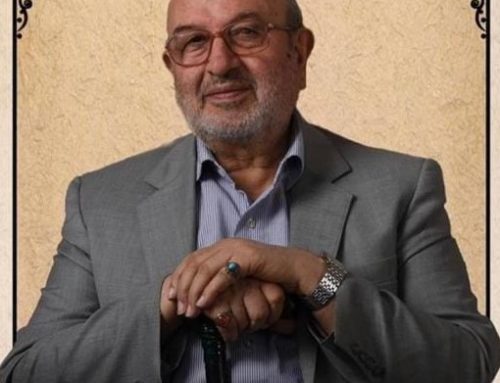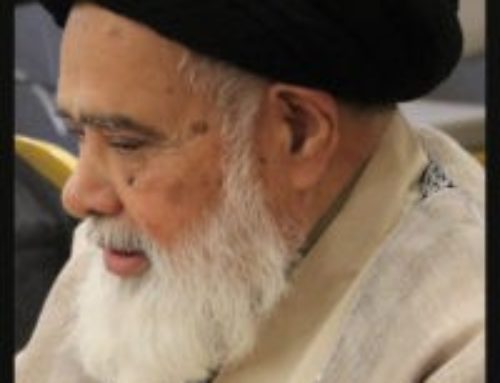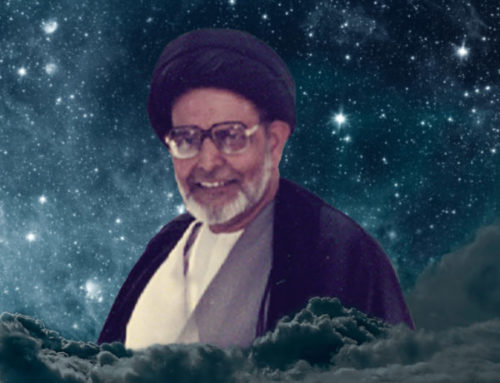A speech by H.I. Sayyid Muhammad Rizvi,
Secretary-General of the Council of Shi‘a Scholars of North America, during their online memorial program
بسمه تعالى وصلى الله على محمد وآله الطاهرين
We have gathered to remember the two important personalities of the Shi‘a world that we lost this week: the first is the Grand Ayatullah Sayyid Muhammad Sa‘īd at-Tabātabā’i al-Hakīm (قدس سره) of Iraq, and the other is the leader of the Supreme Shi‘a Council of Lebanon, H.I. ash-Shaykh ‘Abdul Amīr Qabalān (رحمة الله عليه). We extend our condolences to the Imam of our time (a), the Grand Marāji‘ and their respective families on the demise of these two personalities.
I would like to briefly reflect on the life of the Grand Ayatullah al-Hakim whom I had the opportunity to meet two years ago in my visit to Najaf. [One of our colleagues will speak about Shaykh Qabalan.]
When I look at the family background of the Grand Ayatullah S. Muhammad Sa‘id al-Hakim, I see the family which exemplified the words of Imam ‘Ali bin al-Ḥusayn, as-Sajjād (a), when he responded to Ibn Ziyād’s threat by saying:
أ بالقتل تهدّدني يا ابن زياد؟ أما علمتَ أن القتل لنا عادة وكرامتنا من الله الشهادة؟
“Do you threaten me with death, O Ibn Ziyad? Do not you know that being killed [for Islam] has become our habit and Allah’s honour for us is martyrdom?” (It is a pleasant coincidence that the Grand Marja‘ passed away on the day of the anniversary of Imam Sajjad’s shahadat!)
Al-Ḥakīm family, in our contemporary Shi‘a history, is known for its sacrifice for the Shi‘a cause. The shinning star of that family, the Grand Ayatullah S. Muhsin al-Hakim of 1960s is known for his famous fatwa: “It is not permissible to join the Communist Party as it is disbelief and atheism…” – This prevented the spread of communism among the Shi‘a youths but it came with a heavy price for him and his family. During the time of Ba‘th regime, seven of his ten sons were killed. In May 1983, over 130 members of al-Ḥakīm were arrested and put in prison.
One of them was the Grand Ayatullah S. Muḥammad Sa‘īd who was in the prison for eight years. The point of reflection that I have from his life, is his determination to continue the process of teaching and training of the younger students even inside the prison! He did not let the unpleasant situation of imprisonment shatter his spirits; he decided to make the time in prison as productive as possible.
In this example of the Ayatullah Muhammad Sa‘īd al-Hakīm, I see reflection from the sirah of Imams of Ahlul Bayt. When Imam Musa al-Kāzim (a) was put in prison, he said something amazing:
اللَّهُمَّ إِنَّكَ تَعْلَمُ أَنِّي كُنْتُ أَسْأَلُكَ أَنْ تُفَرِّغَنِي لِعِبَادَتِكَ، اللَّهُمَّ وَ قَدْ فَعَلْتَ، فَلَكَ الْحَمْد
“O Allah, You know that I used pray to You to give me exclusive time to worship you [without any distraction]. O Allah, You have indeed done that; and so praise be to You.” = Imam Musa ibn Ja‘far al-Kāzim (a) turned a worst situation into an opportunity for something that he always wished: to have time for worshipping without any distraction! Similarly, we see that S. Muḥammad Sa‘īd al-Ḥakīm turned his worst situation of imprisonment into an opportunity to continue teaching and training younger fellow prisoners, and in this process he also developed and improved himself.
This should be an uswah and qudwah (example) for us in dealing with the extra-ordinary challenge of COVID-19 and other challenges that we face in our work of serving the cause of the madhhab of Ahlul Bayt on this continent. = Let us not be disheartened with difficulties and challenges in our path. It is for us to change the challenges into opportunities.
I conclude with thanking you for your time and I request you to recite al-Fatiha for both the personalities.
9 September 2021 / 1 Safar 1443







Leave A Comment